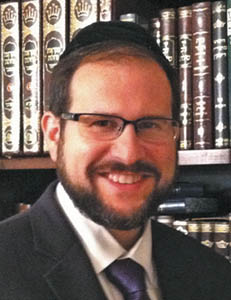
When I was a graduate student at Fordham University working toward my master’s in social work, a fellow student offered me a piece of advice: If you have the option, try not to have a professor who is overly passionate about what he/she is teaching. If the professor has dedicated her life to the topic being taught, you will be expected to share her excitement and the professor will be demanding in her expectations for the course.
I did have a few professors who fit into that category. One of them was for a class I took, titled “Death and Dying.” It wasn’t about how to die, as that seemingly doesn’t require any special classes. Rather it was about exploring our own attitudes and premonitions toward death and dying so we can be better prepared to help clients who are facing tragedy.
It was a very powerful and emotional course, and it presented us with much to reflect upon. The professor was a noted author on the topic and this topic was her specialty. It is obvious, however, that no matter how much expertise one has in dealing with tragedy, when faced with such moments no one is immune from the raw pain and feelings of intense loneliness.
On the final day of the course, all of us students were asked to stand in a circle with the professor to share a final reflection. When it was my turn I shared the following: “Because death has meaning, life has meaning.”
My professor was very moved by the quip, as were quite a few other students. Although it’s always nice when others think you are intelligent, to me it was a truism that I had learned years earlier in yeshiva. Chazal constantly remind us that this world is merely a preparation for a much greater world, a world of truth and bliss. As the Mishnah states in Avot (4:16): “Prepare yourself in the antechamber, so that you can enter the banquet hall.”
There is no other religion that has the same perspective and laws about death as the Torah. On the one hand, we ascribe such holiness to the body even after it is deceased simply because it was the vessel that contained a soul, the life-spark of God. Yet, we also bury the body with simplicity. We do not place it into an expensive coffin, and we do not gaze at the face of the deceased once the soul has departed. Holy and special as the body is, it still remains the mere vessel.
Since time immemorial, we have always deemed those who engage in the sacred work of burying the dead as “the chevra kadisha—the holy group.” The mitzvah of being involved in bringing a body to proper Jewish burial is so sacred, that it is one of the greatest merits one can attain. It is the final dignity granted to a deceased.
The manner in which the body is purified and then dressed in shrouds, with such dignity and reverence, according to the dictates of Halacha, is the greatest testimony to our belief that death is not the finality of life, but rather a major transition—from one level of life to another.
Because death has meaning, all of life—every moment of it, has meaning.
Parshat Vayechi contains the Torah’s recording about the death of Yaakov Avinu. Yet, the Torah never actually states that Yaakov died, only that “he gathered to his people.” What’s more, the very parsha that contains Yaakov’s death is titled “Yaakov lived.” Through our good deeds, and through living for a higher purpose, we transcend the limitations of this world and live beyond our physical years. In that sense, Yaakov lives on in all of us.
This Shabbos, our community is paying tribute to Team Shabbos, a division of the National Association of Chevra Kadisha. It is an organization dedicated to raising and promoting awareness of end-of-life matters according to Halacha.
It is such awareness that reminds us that because death is sacred and has meaning, our entire lives are sacred and have meaning.
Although we hope to not need their services, it is reassuring to know that they are always there for us.
By Rabbi Dani Staum
Rabbi Dani Staum, LMSW, is the rabbi of Kehillat New Hempstead as well as guidance counselor and fifth-grade rebbe in ASHAR, principal at Mesivta Ohr Naftoli of New Windsor, and a division head at camp Dora Golding. He also presents parenting classes based on the acclaimed Love and Logic methods. His email address is: stamtorah@gmail.com. His website is: www.stamtorah.info.











